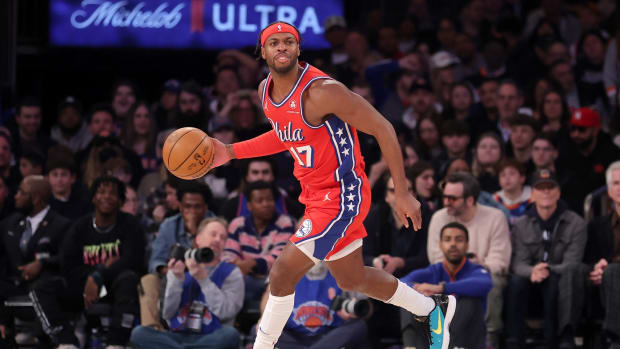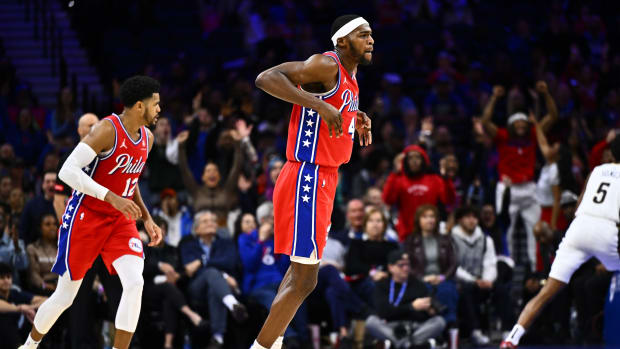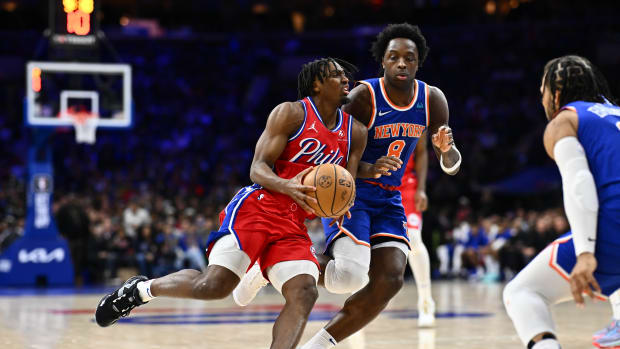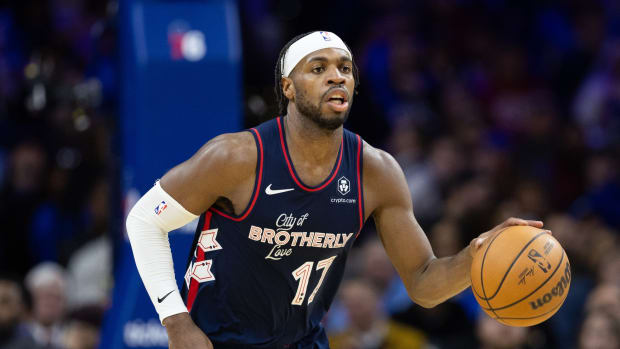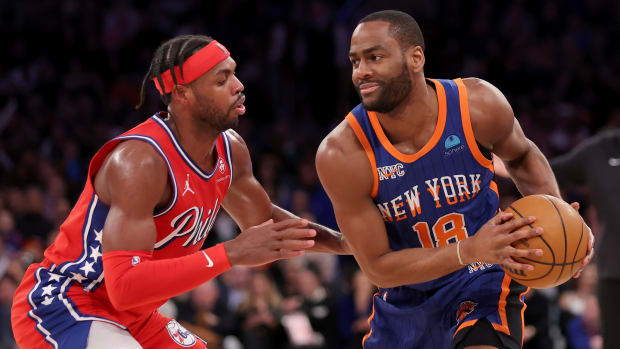Ben Simmons' Former Coach Weighs in on Sixers Star's Shooting Concerns
Ben Simmons just wrapped up his worst playoff series as a member Philadelphia 76ers a week ago. In his fourth season, the three-time All-Star averaged less than 10 points per game on the offensive end and shot less than 35-percent from the free-throw line.
The Sixers' inability to defeat the Atlanta Hawks in a seven-game series wasn't solely Simmons' fault, as many others on the team can take some blame. However, Simmons' offensive shortcomings were a major concern throughout the second-round series, and this wasn't the first time.
At this point in his career, it's clear Simmons isn't going to be a point guard that launches several three-pointers and maybe even a handful of mid-range jumpers every game. Although he's vowed to do that every season since his rookie year, the young guard has yet to prove he'll add that to his game.
In order for Simmons to live up to his potential at the NBA level, he has to expand his game more. Simmons was fearless with his shot back in his high school, college, and even NBA summer league days. But ever since he debuted for the Sixers during the 2017-2018 season, he became hesitant to shoot the ball.
Kevin Boyle, Simmons' High School coach at Montverde Academy, recently spoke with NBC Sports Philadelphia's John Clark to discuss the Sixers star's recent concerns on the court. When asked about Simmons' offensive shortcomings, Boyle admitted that's not something he saw out of Simmons until he reached the pros.
"I thought his shot was pretty good coming out of high school," Boyle explained. "He had a slight slant to the left, but very slight, and when he first got to Philly, I don’t know what really happened, but his form changed to technically not correct. I think trying to maybe straighten him out too much of his arm ended up opening his arm up, and it didn’t look good, and I think he lost confidence."
Simmons isn't the first college star to find his shot altered and essentially "not correct" after getting drafted to the Sixers. Former first-overall pick Markelle Fultz, who was known to be a three-level scorer in college, struggled with his shot the moment he started garnering minutes for the Sixers.
While many believed it was a mental issue for Fultz, the young guard eventually found a diagnosis to prove his broken shot was a result of a physical setback. For Simmons, that's not the case. The star has admitted that his struggles from the free-throw line are absolutely mental. And his head coach believes every other area of his game that he refuses to utilize is a result of a mental block as well.
So, how would the guy who helped shape Simmons into the star he became before he got to LSU and pros get the guard back on track? Boyle explained a shot count could be beneficial.
"I almost think he needs a shot quota that he has to be put on, and he has to have some type of accountability, or substitution thing if you’re not doing that, almost like a reverse psychology," Boyle explained. "We don’t care about the result; we care about that you’re shooting, and you’re going to the foul line, we want 10 foul shots a game, we want X field goals a game. That type of psychology will straighten itself out with work in the gym with some corrections."
A shot count for Simmons sounds good, but it's another technique that's already been done and hasn't worked. Two seasons ago now, former Sixers head coach Brett Brown couldn't get through to Simmons behind the scenes. So, the veteran coach urged the young guard through the media to take at least one three-point shot per game, which Simmons ignored and reportedly got upset about.
While Brown admitted he considered benching Simmons for not following the shot quota put in place, he never did it. Many believed Doc Rivers could be the coach that pushes Simmons to unlock those areas of his game, but he failed to do so too.
Rivers claims he'll be working with Simmons this summer to help him correct the areas he's struggled in lately in hopes of getting him back on track. While he believes everything won't be an easy fix, the Sixers head coach made it clear that it's certainly doable. Will it work? Only time will tell, but it's ultimately up to Ben Simmons to decide that he wants to utilize other areas of his game.
Justin Grasso covers the Philadelphia 76ers for Sports Illustrated. You can follow him for live updates on Twitter: @JGrasso_.

